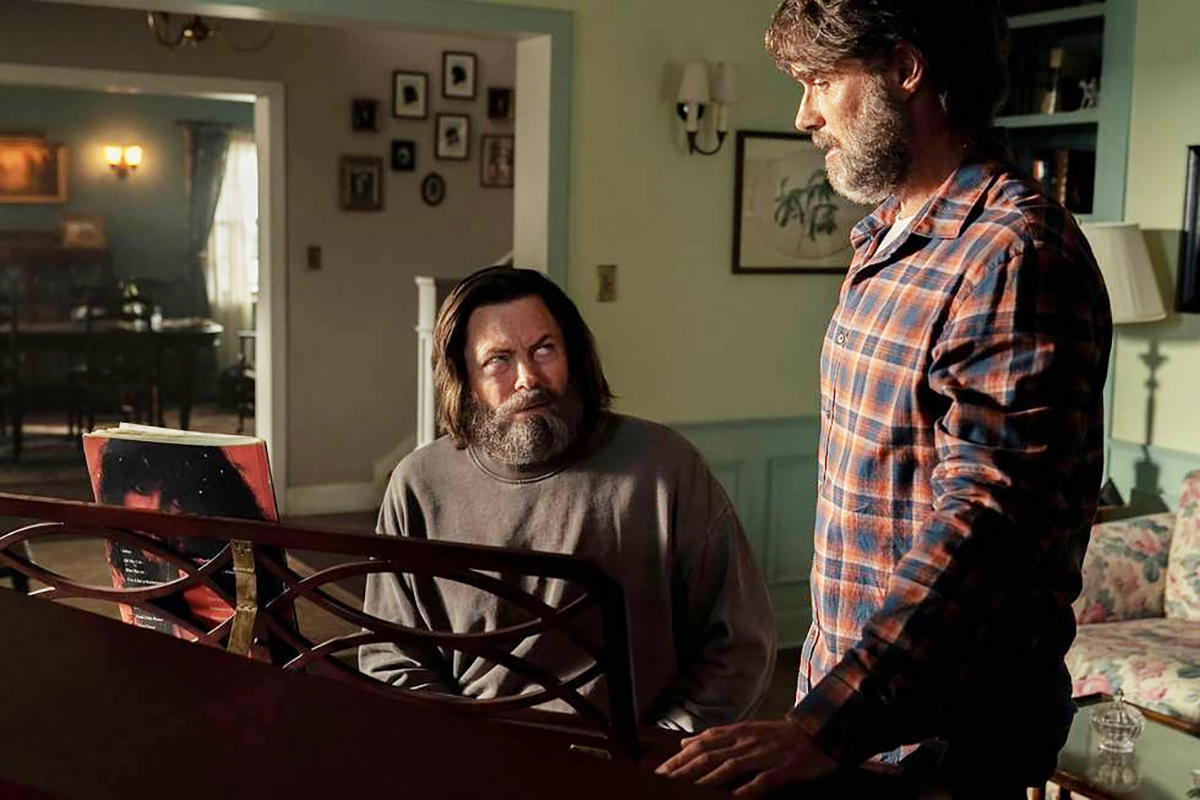It Took About Three Episodes for ‘The Last of Us’ To Be Review-Bombed—to No Effect Whatsoever
Review-bombers find another hobby maybe?

**Spoilers for the third episode of The Last of Us and some of the lore from the video games. Be warned.**
There’s a joke that has been making its rounds around the Internet since HBO’s The Last of Us series adaptation released its third episode, “Long, Long Time,” last Saturday, and it goes like this: Joel needed to get his hands on a car to continue the plot, so the writing room decided to steamroll us with the most beautiful and heart-wrenching queer love story ever put to television—at the end of which Joel gets his car.
Like all great memes, it really is poignant commentary. While the character of Bill does exist in The Last of Us video game, showrunners Craig Main and Neil Druckmann decided to take things in a different direction in the adaptation—expanding on the almost twenty years he lived with Frank and changing his ending in a way that has left us all on the floor. I can tell you that I have personally not recovered from it, even though it’s been almost a week.
A sentiment that has been pretty much echoed by critics and most fans, it’s overall very refreshing to see a queer couple being allowed to fall in love and live in relative peace and go out on their own terms, even in a post-apocalyptic scenario like that of The Last of Us, without falling into the usual tropes—”Bury Your Gays” first and foremost.
Bill and Frank’s ending isn’t tragic just for the sake of queer pain. Like Bill himself says, it’s a bittersweet full stop at the end of a life well-lived, where both men realized (and helped both Joel and Ellie, as well as the audience, realize it with them) that you need to both survive and live—otherwise, what’s the point?
Enter review-bombers
But of course, because the internet is a hellscape and we sadly know very well the kinds of people that populate it, not everyone has appreciated “Long, Long Time”— in fact, the episode was subjected to a review bombing campaign on IMDb almost as soon as it came out and people realized what it was about.
Some of those who are participating in it try to hide behind “reasonable” motivations—talking about slowed down pace and a shift in focus from the protagonists to minor characters. I almost prefer those who are just straightforward about their homophobia and accuse “Long, Long Time” of the usual things, “pushing the agenda” this and “being woke” that.
The review-bombing is pretty apparent even to someone who doesn’t do that great with numbers, like me. If you go to the IMDb page for The Last of Us and compare the ratings of the three episodes released so far, you’ll see that both “When You’re Lost in the Darkness” and “Infected” have around 60,000-70,000 reviews, with 60% of those being the top rating. “Long, Long Time” instead has double the overall reviews, sitting at almost 130,000, with the lowest rating making up 29% of those.
What can you say? It was an effort—a useless one, granted, but an effort nonetheless.
The high score remains
While you can see the review-bombing campaign in the breakdown of each episode’s rating, the dent that it made in The Last of Us’s high score is barely noticeable—with “Long, Long Time” averaging 7.9 when compared to the 9.2 of both “When You’re Lost in the Darkness” and “Infected.”
Certainly not the dramatic crashing down that was probably expected by those who initiated this whole circus. And IMDb numbers aside, you have to consider the steady grip on the current pop culture scene that the show and its characters and its actors have, and will very much continue to have at least until the end of this first season, only to pick it back up again once it’s time for the already-confirmed season 2.
(via Screen Rant, featured image: HBO)
Have a tip we should know? tips@themarysue.com